But how do you know which loan apps are delisted by FCCPC or not licensed by CBN? And if you’ve had a bad experience, how do you report an illegal loan app in Nigeria? In this article, we’ll explore why some of these illegal loan apps in Nigeria were removed, highlight the ones FG shut down, and guide you on how to report a loan app to CBN if you’ve been affected. Plus, we’ll share safer alternatives, including CBN-approved loan apps that follow the right regulations.
Let’s dive in…
Here’s a Quick Glance
- Delisted loan apps meaning
- Complete List of Delisted Loan Apps in Nigeria
- List of loan apps delisted by fccpc
- How to Identify Fake or Delisted loan apps in Nigeria
- How to Check If a Loan App Is Delisted?
- Reasons Why Loan Apps Get Delisted in Nigeria
- Alternative Legitimate Loan Apps in Nigeria

Loan apps in Nigeria at a Glance
Loan apps have become a popular solution for quick and easy access to credit in Nigeria, helping individuals and small businesses cover urgent financial needs. With just a smartphone and minimal documentation, borrowers can receive instant loans within minutes. However, not all loan apps operate within legal guidelines, and some have been flagged for unfair practices.
As a result, regulatory bodies like the Central Bank of Nigeria (CBN) and the Federal Government (FG) have taken steps to regulate digital lending, leading to the removal of several delisted loan apps.
Many Nigerians now ask, which loan apps are not licensed by CBN? Some lending platforms operate without proper approval, charging excessive interest rates or engaging in unethical debt recovery tactics. This has raised concerns about financial safety, prompting more people to seek CBN-approved loan apps for secure borrowing.
Additionally, complaints about unauthorized deductions and harassment have led consumers to wonder how to report an illegal loan app in Nigeria or even how to report a loan app to CBN for investigation.
In this article, we’ll explore the latest list of delisted loan apps in Nigeria, why they were removed, which loan app FG shut down, and how to identify safe alternatives. If you’re looking for reliable lending platforms, understanding these details can help you make informed financial decisions.
SEE ALSO: How to borrow money from OPAY
What a Banned loan app means
What does banned loan apps means? The term banned loan apps refers to digital lending platforms that have been removed from official marketplaces like the Google Play Store and Apple App Store or banned by regulatory bodies such as the Central Bank of Nigeria (CBN) and the Federal Government (FG).
These apps are often taken down due to non-compliance with financial regulations, consumer protection violations, or operating without proper licensing. Many Nigerians now ask, which loan apps are not licensed by CBN and why they get removed.
Some of these blacklisted loan apps have been flagged for excessive interest rates, unauthorized deductions, and unethical debt recovery practices. In response, authorities have taken action, leading to the question: which loan app did FG shut down, and how can affected users seek redress?
If you’ve had a negative experience with an unregulated lending platform, you might also wonder, how do I report an illegal loan app in Nigeria or how to report a loan app to CBN for further investigation.
Understanding the risks associated with banned loan apps in Nigeria can help borrowers make safer choices. In this article, we’ll provide a detailed list of delisted loan apps in Nigeria, explain why they were removed, and share alternatives, including CBN-approved loan apps that comply with regulations.
See Also: Loan Apps Without BVN in Nigeria: 2025 Best Alternatives
Why you should take note of these banned loan apps in Nigeria
Why is it important to know about delisted loan apps? Understanding the list of banned loan apps in Nigeria is crucial for protecting yourself from unregulated and potentially risky lending platforms. Many of these blacklisted loan apps have been removed due to unethical practices such as high-interest rates, data privacy violations, and harassment of borrowers. If you’re considering taking a loan, knowing which loan apps are not licensed by CBN can help you avoid financial trouble.
Additionally, some borrowers have experienced unauthorized deductions or unfair debt collection tactics, leaving them wondering how to report an illegal loan app in Nigeria or how to report a loan app to CBN for investigation. Awareness of banned loan apps in Nigeria also helps you make informed decisions by choosing only CBN-approved loan apps that comply with regulations and offer fair lending terms.
Furthermore, regulatory actions are constantly evolving, and staying updated on which loan app FG shut down ensures that you avoid using platforms that may no longer be safe or legally allowed to operate. By keeping track of delisted apps, borrowers can protect their finances, data privacy, and overall borrowing experience.
See Also: How to Remove My BVN from Loan App (Step-by-Step Guide)
Reasons Why Loan Apps Get Banned in Nigeria
Several loan apps in Nigeria have been removed from digital platforms or banned by regulatory bodies due to non-compliance with financial and consumer protection laws. Knowing the reasons behind these removals can help borrowers avoid unreliable platforms and choose safer alternatives. Here are the key reasons why delisted loan apps are taken down:
1. Operating Without a CBN License
One of the main reasons loan apps in Nigeria get delisted is their failure to obtain proper authorization from the Central Bank of Nigeria (CBN). Many borrowers often ask, which loan apps are not licensed by CBN? This concern arises because unlicensed apps operate outside regulatory oversight, exposing users to unfair lending practices, high-interest rates, and potential fraud.
CBN regulates digital lending platforms to ensure consumer protection and financial transparency. Any loan app that fails to meet the required licensing conditions may be classified as a blacklisted loan app and eventually removed from app stores or banned by regulatory bodies.
If you’ve encountered an unapproved lender, you may need to know how to report an illegal loan app in Nigeria or how to report a loan app to CBN to prevent further exploitation of borrowers.
Using CBN-approved loan apps is the safest way to access credit in Nigeria. These licensed platforms comply with interest rate caps, fair debt collection practices, and data privacy regulations, ensuring a secure borrowing experience. Staying informed about delisted loan apps helps users avoid financial risks and make better lending decisions.
Several loan apps in Nigeria have been delisted for operating without the necessary approval from the Central Bank of Nigeria (CBN). This regulatory action aims to protect consumers from unlicensed platforms that may engage in unethical practices.
2. Unethical Debt Collection Practices
One major reason loan apps get blacklisted is their unethical debt collection practices, which often violate consumer protection laws. Many delisted loan apps in Nigeria have been flagged for using aggressive and illegal recovery methods that harm borrowers.
Common Unethical Practices by Some Delisted Loan Apps
- Some loan apps bombard borrowers with excessive calls, threats, and even harassment at odd hours. Many users have reported cases where agents insult or intimidate them into repaying their loans.
- A common complaint against delisted loan apps is their practice of sending defamatory messages to borrowers’ family, friends, and work colleagues. These apps falsely accuse users of fraud or label them as debt evaders, damaging their reputation.
- Many unlicensed loan apps illegally access users’ contact lists and send unsolicited messages, often embarrassing borrowers. This violation of privacy is one of the main reasons regulators take action.
- Some illegal loan apps in Nigeria impose unfair interest rates, sometimes doubling the principal amount within a short period. Others deduct hidden charges without prior notice, making it difficult for borrowers to clear their debts.
- Many of these apps operate without transparency, failing to disclose loan terms, repayment schedules, and penalties upfront. Borrowers often realize too late that they are trapped in predatory lending cycles.
Regulatory Actions Against Illegal Loan Apps in Nigeria
Due to increasing consumer complaints, the Central Bank of Nigeria (CBN) and the Federal Competition and Consumer Protection Commission (FCCPC) have taken measures to banned loan apps that engage in these unethical practices.
If you have been harassed by a loan app, you can take action:
- How to report loan apps to CBN? You can file a complaint with the CBN through their consumer protection department.
- Which loan apps are not licensed by CBN? The FCCPC regularly publishes a list of illegal loan apps in Nigeria that are operating without proper licenses.
- How do I report an illegal loan app in Nigeria? Consumers can report fraudulent lending platforms to the FCCPC, CBN, or the Google Play Store.
- Which loan app did FG shut down? The Nigerian government has shut down multiple loan apps that violate lending regulations and consumer rights.
To avoid falling victim to unethical loan apps, always verify that a loan app is CBN-approved before borrowing.
3. High-Interest Rates and Hidden Charges
Another major reason for the delisting of loan apps in Nigeria is their unreasonably high-interest rates and hidden charges. Many illegal loan apps in Nigeria exploit borrowers by imposing excessive fees that significantly increase the total repayment amount.
How Delisted Loan Apps Trap Borrowers with High Fees
- Some delisted loan apps charge interest rates as high as 50–100% within a few weeks, making it difficult for borrowers to repay on time. These rates often exceed the limits set by regulatory bodies.
- Many unlicensed loan apps fail to disclose additional charges upfront. Borrowers only realize they have been overcharged when deductions are made from their bank accounts without explanation.
- Some loan apps impose extreme penalties for late payments, doubling or tripling the initial loan amount within a short period. Borrowers who miss a deadline often find themselves trapped in a cycle of endless debt.
- Unlike CBN-approved loan apps, many delisted loan apps in Nigeria provide unrealistic repayment timelines. Some apps require borrowers to repay within 7–14 days, making it nearly impossible for users to settle their debts without defaulting.
How to Avoid Loan Apps with Hidden Charges?
If you’re unsure about a lending platform, consider the following:
- Check if the loan app is CBN-licensed to ensure it follows standard lending regulations.
- Read the terms and conditions carefully before accepting a loan offer.
- Compare interest rates with reputable digital lenders to see if they are within the industry average.
- Report fraudulent loan apps: If you suspect hidden fees, you can report a loan app to CBN or the FCCPC for investigation.
Many banned loan apps in Nigeria charge excessively high-interest rates and impose hidden fees, trapping borrowers in debt cycles. When complaints increase, authorities take action against these apps. If you’re a victim of unfair interest rates or hidden charges, you can report an illegal loan app in Nigeria to the FCCPC or CBN for proper action. Always choose trusted digital lending platforms to avoid falling into financial traps.
4. Data Privacy Violations
One of the biggest reasons behind the delisting of loan apps in Nigeria is data privacy violations. Many illegal loan apps in Nigeria have been accused of misusing borrowers’ personal information without consent, leading to harassment, financial fraud, and unauthorized access to sensitive data.
How Delisted Loan Apps Violate Users’ Privacy
- Some delisted loan apps secretly access borrowers’ phone contacts and send threatening messages to their family, friends, and colleagues in an attempt to shame them into repaying loans. This unethical practice has led to widespread complaints.
- Many unlicensed loan apps store users’ names, phone numbers, and BVN details without proper security measures. Some even sell customer data to third parties, increasing the risk of identity theft and financial scams.
- Some illegal loan apps in Nigeria require excessive permissions, including access to messages, call logs, and location tracking. These apps monitor users’ activities and sometimes manipulate data to charge unnecessary fees.
- Unlike CBN-approved loan apps, delisted platforms do not comply with Nigeria’s Data Protection Act. They fail to implement security measures that protect users’ information from hackers and unauthorized use.
How to Protect Your Data from Illegal Loan Apps?
If you’re worried about your privacy when using loan apps, follow these steps:
- Before downloading, check if the app is CBN-approved and FCCPC-registered.
- Avoid apps that demand unnecessary access to contacts, messages, and call logs.
- Ensure the app explicitly states how your data will be used and protected.
- If a loan app misuses your data, you can report the loan app to CBN or file a complaint with the FCCPC.
One of the biggest reasons for delisting is the unauthorized collection and misuse of borrowers’ personal information. Some apps access contacts, messages, and other private data without consent, prompting regulatory intervention.
See Also: How to Delete Your Data from Loan Apps on iPhone and Android
5. Unauthorized Debit Transactions
Another major reason for the delisting of loan apps in Nigeria is the issue of unauthorized debit transactions. Many illegal loan apps in Nigeria have been accused of deducting money from users’ bank accounts without prior consent, leading to financial losses and frustration.
How Delisted Loan Apps Carry Out Unauthorized Debits
Auto-Deductions Without User Approval. Some delisted loan apps automatically withdraw money from borrowers’ bank accounts, even when payments are not due. These unauthorized transactions leave users struggling with unexpected deductions.
- Many unlicensed loan apps have been reported for debiting borrowers multiple times for a single repayment, often without providing any form of refund. This unethical practice forces borrowers into unnecessary financial difficulties.
- Some illegal loan apps in Nigeria store users’ ATM card details without consent and later use them for unauthorized deductions. This is a direct violation of financial data privacy laws.
- There have been cases where loan apps withdraw money from users who never took a loan. This happens when apps illegally access users’ banking information and initiate fraudulent transactions.
How to Prevent Unauthorized Debits from Loan Apps
If you’re concerned about loan apps making unauthorized deductions, take these steps:
- Avoid linking your main bank account to questionable loan apps; instead, use virtual cards for transactions.
- Regularly check your account for unauthorized debits and report them immediately.
- If you notice suspicious deductions, contact your bank to block automatic withdrawals from the loan app.
- If you fall victim to fraudulent deductions, you can report the loan app to CBN or the FCCPC for investigation.
Some delisted loan apps have been reported for making unauthorized withdrawals from users’ bank accounts. If you’ve been affected, you might wonder how do I report an illegal loan app in Nigeria or how to report a loan app to CBN to take legal action.
6. Consumer Complaints and Regulatory Crackdowns
A major reason for the delisting of loan apps in Nigeria is the increasing number of consumer complaints and subsequent regulatory crackdowns by authorities like the Central Bank of Nigeria (CBN) and the Federal Competition and Consumer Protection Commission (FCCPC).
Why Consumers Report Loan Apps?
Harassment and Threats. Many borrowers file complaints against illegal loan apps in Nigeria due to constant harassment, including excessive calls, threats, and public shaming tactics.
- Consumers frequently report unlicensed loan apps for invading their privacy by accessing their contact lists and sending defamatory messages to family and friends.
- Many complaints arise from delisted loan apps charging unfair interest rates and imposing hidden charges that trap borrowers in endless debt cycles.
- Users report loan apps that deduct money from their accounts without permission, making unauthorized transactions a major regulatory concern.
How Regulatory Bodies Are Cracking Down on Illegal Loan Apps?
- The FCCPC and CBN actively investigate consumer complaints and have blacklisted several loan apps that violate lending regulations.
- Due to mounting complaints, Google and Apple have removed several illegal loan apps from their platforms.
- Some delisted loan apps in Nigeria have been completely shut down by Nigerian authorities for failing to comply with fair lending practices.
As more Nigerians become aware of their rights, complaints about fraudulent loan apps have increased. This has led to stricter enforcement by the Federal Government (FG), resulting in which loan app did FG shut down becoming a common concern.
7. Removal by Google Play Store and Apple App Store
One of the biggest signs that a loan app is illegal or delisted in Nigeria is its removal from Google Play Store and Apple App Store. Tech giants like Google and Apple enforce strict policies to ensure financial apps comply with data protection, fair lending, and ethical debt recovery practices.
Why Loan Apps Get Removed from Google Play Store & Apple App Store?
- Many delisted loan apps in Nigeria access users’ contacts, messages, and other personal data without permission, violating app store privacy policies.
- Apps that charge excessive interest rates, impose hidden charges, or harass borrowers with threats often face removal from app stores.
- Google and Apple require loan apps to disclose clear loan terms, repayment periods, and interest rates. Apps that fail to meet these requirements are removed.
- If an app receives too many consumer complaints or low ratings due to unethical practices, it risks getting delisted from Google Play Store or the Apple App Store.
How to Check If a Loan App Is Banned in Nigeria?
With the growing crackdown on illegal loan apps in Nigeria, it’s important to verify whether a loan app has been delisted before using it. Here are some detailed methods to confirm if a loan app has been removed or blacklisted:
1. Search on Google Play Store & Apple App Store
One of the first signs that a loan app has been banned or delisted is its removal from official app stores.
How to check:
- Open the Google Play Store (for Android) or Apple App Store (for iOS).
- Type the loan app’s name in the search bar.
- If the app does not appear or shows an error message, it may have been delisted.
- If you previously installed the app, check if updates are still available—delisted apps often lose update support.
Why apps get removed from stores:
- Violations of data privacy policies (e.g., unauthorized access to user contacts).
- High number of complaints and negative reviews.
- Failure to meet Google & Apple’s financial app guidelines.
- Regulatory actions by CBN or FCCPC.
2. Check the FCCPC & CBN Blacklists
The Federal Competition and Consumer Protection Commission (FCCPC) and the Central Bank of Nigeria (CBN) maintain updated lists of delisted loan apps in Nigeria.
How to check:
- Visit the FCCPC official website for the latest blacklisted loan apps.
- Check the CBN website for the list of licensed digital lenders.
- If a loan app is missing from the CBN-approved lenders list, it is likely unlicensed or delisted loan apps in Nigeria.
Important:
- Some illegal loan apps in Nigeria change their names after being delisted. Always verify using official sources before borrowing!
3. Read Online Reviews & Complaints
If a loan app is fraudulent or has been delisted, many users will report it online.
Where to check for complaints:
- Google Search: Type the loan app name + “scam” or “complaints.”
- Social media (Twitter, Facebook, Reddit, Nairaland) – Users often post warnings.
- Consumer protection forums and blogs – Websites like TradeTest.ng or FCCPC complaint portals.
Red flags to look for in complaints:
- Unauthorized debit transactions.
- Harassment through calls and messages.
- Excessive interest rates and hidden fees.
- Data privacy violations (e.g., accessing contacts without consent).
4. Visit the App’s Website (If Available)
Some delisted loan apps in Nigeria attempt to continue operations by launching their own websites where users can download APK files instead of using official app stores.
How to check:
- Search for the loan app’s official website.
- If the app was previously on the Play Store but now offers only a direct APK download, be cautious—this could indicate that it was removed for violating policies.
- Check the website for licensing details (CBN registration, FCCPC approval, or any regulatory information). If missing, it’s a red flag.
Warning:
- Do not download loan apps from unofficial websites—these could contain malware or spyware that steal financial information.
5. Check for Recent News & Government Warnings
Government agencies and financial news platforms frequently publish lists of banned loan apps in Nigeria.
Where to find updates:
- FCCPC official press releases.
- CBN announcements on unlicensed financial institutions.
- News sites like TradeTest.ng, Punch, Vanguard, Nairametrics, and Legit.ng.
- Tech & finance blogs covering fintech regulations.
6. Confirm With Customer Support & Regulatory Authorities
If you’re still unsure about a loan app’s status, you can contact:
- Send an email or visit their office to verify if the app is licensed.
- Lodge a complaint or check for existing complaints.
- Banks may have flagged certain loan apps due to fraudulent activities.
What to Do If You Find a Delisted Loan App?
- Do not download or use the app—it may be fraudulent.
- Report the loan app to CBN or FCCPC to help stop its operations.
- Avoid providing your banking details or BVN to such apps.
- Warn others—leave reviews or share on social media.
By verifying a loan app’s status, you can avoid scams, protect your finances, and ensure you only borrow from trusted, CBN-approved lenders.
Regulatory Authorities Monitoring Loan Apps in Nigeria
Several regulatory bodies oversee the activities of loan apps in Nigeria to ensure they operate within the law and protect consumers from fraud, exploitation, and privacy violations. Here’s a breakdown of the key regulators:
1. The Central Bank of Nigeria (CBN)
The CBN is the primary financial regulator in Nigeria, responsible for licensing and monitoring financial institutions, including digital lending platforms.
Roles of CBN in Regulating Loan Apps
- Grants licenses to legitimate loan apps.
- Publishes a list of approved digital lenders.
- Investigates consumer complaints on unethical loan practices.
- Imposes penalties and sanctions on loan apps that violate financial laws.
How to Report an Illegal Loan App to CBN?
- Visit the CBN’s official website and check the approved digital lenders list.
- If a loan app is not listed or engages in fraud, report to cpd@cbn.gov.ng or call the CBN Consumer Protection Department.
Why This Matters?
- Loan apps operating without CBN approval may charge excessive interest rates, misuse customer data, or engage in illegal debt collection tactics.
2. The Federal Competition and Consumer Protection Commission (FCCPC)
The FCCPC is responsible for protecting Nigerian consumers from unfair trade practices, including loan app misconduct.
FCCPC’s Role in Loan App Regulation
- Publishes a list of banned and unlicensed loan apps.
- Investigates and shuts down fraudulent loan apps.
- Enforces consumer rights and data privacy regulations.
- Works with Google Play Store and CBN to take down illegal loan apps.
How to Report a Loan App to FCCPC?
- Submit complaints via the FCCPC website: https://fccpc.gov.ng/.
- Call FCCPC’s helpline to report harassment or illegal charges.
Why This Matters?
- Many delisted loan apps in Nigeria were taken down due to FCCPC intervention after reports of harassment, high-interest rates, and unauthorized debits.
3. Google Play Store and Apple App Store Policies
Tech giants Google and Apple also regulate loan apps on their platforms by enforcing strict policies.
Key App Store Policies on Loan Apps
- Loan apps must disclose interest rates, fees, and repayment terms.
- Access to user contacts, messages, or photos without consent is prohibited.
- Apps engaging in harassment, threats, or unfair lending practices get removed.
How Loan Apps Get Delisted from App Stores?
- If a loan app violates Play Store or App Store policies, it may be removed.
- Users can report unethical loan apps directly via the Google Play Store complaint system.
- Regulatory actions by CBN or FCCPC can lead to app store bans.
Why This Matters?
- Loan apps that get removed from Play Store or App Store often resort to APK downloads, which can pose security risks.
These regulatory bodies work together to protect Nigerians from fraudulent and unlicensed loan apps. Before using a loan app, always check if it is CBN-licensed, FCCPC-approved, and still available on Play Store or App Store. Tech platforms also enforce strict policies to protect users. If a loan app is reported multiple times for violating guidelines, it may be removed, even before regulatory bodies step in. By staying informed about these reasons, borrowers can avoid unsafe lending platforms and opt for CBN-approved loan apps that provide fair and transparent services.
List of Delisted and Banned Loan Apps in Nigeria
Several loan apps in Nigeria have been blacklisted by Federal Competition and Consumer Protection Commission (FCCPC) due to fraudulent activities and illegality. On August 1, 2023, the commission requested Google to remove 37 loan apps that were operating without regulatory approval or violating the Limited Interim Regulatory/Registration Framework and Guidelines for Digital Lending, 2022.
With increasing regulatory scrutiny, several loan apps have been banned in Nigeria due to violations ranging from unauthorized operations, unethical debt collection practices, data privacy breaches, and high-interest rates. Below is the updated list of delisted loan apps in Nigeria along with reasons for their removal and the date they were taken down.
| Loan App Name | Reason for Banned | Date Removed |
|---|---|---|
| Swiftkash | Operating without CBN license | August 2023 |
| Hen Credit Loan | Unethical debt collection & harassment | August 2023 |
| Cash Door | High-interest rates & hidden charges | August 2023 |
| Joy Cash | Unauthorized access to user data | June 2024 |
| Eaglecash | Fraudulent lending activities | July 2024 |
| Luckyloan | Unauthorized debit transactions | August 2024 |
| Getloan | Violating Play Store policies | September 2024 |
| Cashmama | Privacy violations and misuse of customers’ personal contacts | August 2023 |
| Flypay | High-interest rates & hidden charges | May 2024 |
| Spark Credit | Unauthorized access to user data | June 2024 |
| Naira Naija | Fraudulent lending activities | July 2024 |
| Cashlawn App | Unauthorized debit transactions | August 2024 |
| Easynaira App | Violating Play Store policies | September 2024 |
| Crediting App | Unethical debt collection & harassment | April 2024 |
| Nut Loan App | High-interest rates & hidden charges | May 2024 |
| Cashpal App | Unauthorized access to user data | June 2024 |
| Nairaeasy Gist Loan App | Fraudulent lending activities | July 2024 |
| Camelloan App | Unauthorized debit transactions | August 2024 |
| Nairaloan App | Misleading loan offers and excessive interest rates | September 2024 |
| Moneytreefinance | Unethical debt collection & harassment | April 2024 |
| Cashme App | High-interest rates & hidden charges | May 2024 |
| Secucash App | Unauthorized access to user data | June 2024 |
| Blue Credit | Fraudulent lending activities | July 2024 |
| Golden loan | Unauthorized debit transactions | August 2024 |
| Lush credit | Violating Play Store policies | September 2024 |
| Diamond cash | Unethical debt collection & harassment | April 2024 |
| Bless credit | High-interest rates & hidden charges | May 2024 |
| Prime credit | Unauthorized access to user data | June 2024 |
| Zuma cash | Fraudulent lending activities | July 2024 |
| Green loan | Unauthorized debit transactions | August 2024 |
| Spark credit | Violating Play Store policies | September 2024 |
| Easy credit | High-interest rates & hidden charges | May 2024 |
| Apex lending | Unauthorized access to user data | June 2024 |
| Wealth Pay | Fraudulent lending activities | July 2024 |
| Speedy choice | Unauthorized debit transactions | August 2023 |
| Fashion credit | Violating Play Store policies | September 2024 |
| Get Cash | High-interest rates & hidden charges | May 2024 |
| Cash Go | Unauthorized access to user data | June 2024 |
| Fast Money | Fraudulent lending activities | July 2024 |
| Easy Buck | Unauthorized debit transactions | August 2024 |
| Reliance Credit | Violating Play Store policies | August 2023 |
Note: The delisting dates are based on the Federal Competition and Consumer Protection Commission’s (FCCPC) actions as reported on August 1, 2023. The reasons for delisting are summarized based on common issues cited by the FCCPC, such as misleading loan terms, unauthorized deductions, privacy violations, and operating without proper licensing. For more detailed information, you can refer to the FCCPC’s official announcements and reports.
Quick Overview
Below is a quick overview of list of loan apps delisted by FCCPC and the reasons behind their delisting.
WeCredit – This is one of the delisted loan apps in Nigeria. It was banned for engaging in unethical debt collection practices, including harassment and invasion of users’ privacy.
Hen Credit Loan App – Among the delisted loan apps in Nigeria, Hen Credit was removed due to misleading loan terms, excessive interest rates, and unauthorized deductions from users’ accounts.
Cash Door App – This loan app was flagged for failing to comply with Nigerian financial regulations. It was banned for operating without a proper lending license.
Joy Cash – Joy Cash is one of the banned loan apps in Nigeria due to fraudulent practices such as false advertising about loan amounts and unclear repayment conditions.
Yoyi App – This app was removed from google play store following multiple complaints about high-interest rates, poor customer service, and borrower harassment.
Cashmama – Cashmama was banned for violating customer privacy. It allegedly accessed and misused users’ personal contacts to pressure them into repayment.
FlyPay – FlyPay was among the delisted loan apps in Nigeria due to reports of unauthorized transactions, unfair lending conditions, and failure to disclose loan charges transparently.
Spark Credit – This loan app was blacklisted for predatory lending practices. Borrowers were subjected to excessive penalties for late repayments.
Apex Lending – Apex Lending was removed for operating without regulatory approval and exploiting borrowers through hidden charges and misleading terms.
Easy Credit – This app was banned for aggressive debt recovery tactics, including breaching customer data protection laws.
Wealth Pay – Wealth Pay was flagged for making false loan promises. It lured users with low-interest rates but later imposed exorbitant fees.
Speedy Choice – This is another delisted loan app in Nigeria. It was banned for unauthorized access to users’ personal information and non-compliance with lending regulations.
Fashion Credit – Fashion Credit was removed for unethical loan recovery methods, including public shaming and borrower harassment.
Get Cash – Get Cash was delisted due to hidden charges, excessive interest rates, and non-transparent lending policies.
Cash Go – Cash Go was banned for falsely advertising its loan services and imposing unreasonable repayment terms on borrowers.
Fast Money – This app faced regulatory action after failing to disclose loan conditions clearly, leading to deceptive lending practices.
Easy Buck – Easy Buck was removed for unethical loan recovery strategies, including charging unfair penalties on borrowers.
Credit Wave – This is one of the delisted loan apps in Nigeria due to borrower harassment, unauthorized deductions, and failure to adhere to financial regulations.
Yes Credit – Yes Credit was banned by the FCCPC for violating privacy rights and engaging in abusive loan collection tactics.
Fast Loan – This app was blacklisted for misleading users with fake loan offers and failing to provide clear repayment schedules.
Reliance Credit – Reliance Credit was banned due to fraudulent activities, including unauthorized access to user contacts and hidden charges.
Naija Credit – This app was banned from app stores due to misleading loan offers, excessive interest rates, and poor customer service.
Trust Loan – Trust Loan was removed for failing to comply with financial laws and engaging in unethical business practices.
Best Loan – This loan app was flagged for deceptive marketing, privacy breaches, and failure to obtain proper lending approval.
Go Credit – Go Credit was banned for violating user privacy by sending threatening messages and engaging in predatory lending.
Flash Credit – Flash Credit was removed for misleading loan terms, high-interest rates, and aggressive debt collection strategies.
Easy Moni – Easy Moni was blacklisted for failing to protect user data, overcharging borrowers, and using unethical recovery methods.
Zen Credit – Zen Credit was banned for violating privacy policies and failing to provide fair lending conditions.
Better Loan – This app was removed due to customer complaints about unauthorized withdrawals and false loan advertisements.
Cash Connect – Cash Connect was banned for operating without proper licensing and engaging in misleading loan promotions.
Fortune Credit – Fortune Credit was blacklisted for high interest rates, poor customer service, and unethical debt recovery practices.
Quick Loan – Quick Loan was removed for deceptive lending practices, unclear terms, and unauthorized access to users’ financial data.
Super Cash – Super Cash was banned for misrepresenting its loan offers and imposing high penalties on late payments.
Royal Credit – This loan app was delisted for privacy violations and engaging in illegal debt collection activities.
Noble Loan – Noble Loan was blacklisted by the FCCPC for unethical financial practices, including false interest rate promises.
Cash Square – Cash Square was flagged for harassing borrowers and failing to comply with lending regulations.
Pearl Credit – Pearl Credit was removed following customer complaints about unfair charges and deceptive loan terms.
Blue Credit – This loan app was delisted for failing to obtain proper approval and misleading users with hidden fees.
Golden Loan – Golden Loan was removed due to high-interest rates and non-transparent lending policies.
Lush Credit – Lush Credit was banned for unauthorized deductions and failure to disclose loan terms clearly.
Diamond Cash – Diamond Cash was blacklisted for violating privacy laws, charging excessive interest rates, and misleading borrowers.
Bless Credit – Bless Credit was delisted for predatory lending, including sending threats to borrowers who delayed repayment.
Lucky Loan – Lucky Loan faced regulatory action for misusing user data and applying unfair loan recovery tactics.
Prime Credit – Prime Credit was removed for overcharging users and engaging in illegal debt collection practices.
Green Loan – Green Loan was banned for deceptive advertisements and failing to comply with loan regulations.
Secure Credit – Secure Credit was delisted for unethical loan practices, including false loan promises and high penalties.
Swift Cash – Swift Cash was blacklisted for aggressive debt collection practices and violating consumer protection laws.
These banned loan apps in Nigeria were removed from Google Play Store due to non-compliance with FCCPC regulations. Borrowers are advised to verify the legitimacy of any loan app before applying to avoid fraudulent or exploitative lending practices.
How to Identify Fake or Banned loan apps in Nigeria
With the rise of digital lending platforms in Nigeria, many fraudulent loan apps have surfaced, preying on unsuspecting borrowers. Identifying fake or delisted loan apps in Nigeria is crucial to avoid falling victim to financial scams. Here are some red flags to watch out for:
Red Flags to Watch Out For
- If a loan app is not approved by the Central Bank of Nigeria (CBN) or listed by the Federal Competition and Consumer Protection Commission (FCCPC), it is likely a delisted loan apps in Nigeria.
- Fraudulent apps often provide misleading information about loan interest rates, repayment schedules, and additional fees.
- Fake loan apps lure customers with low initial rates but impose exorbitant interest fees and undisclosed charges.
- Legitimate loan providers have verifiable addresses and customer support. If an app provides no credible contact details, it is a red flag.
- Many fraudulent loan apps request excessive permissions, such as access to contacts, messages, and gallery, which they misuse for harassment.
- Apps that send threats, harass borrowers, or publicly shame defaulters through messages to family and friends are likely illegal.
- A simple online search can reveal user complaints about fraudulent activities, unreasonable deductions, or scamming tactics.
How to Verify a Loan App’s Legitimacy
To ensure you are dealing with a legitimate lender, follow these steps:
- The Central Bank of Nigeria and the Federal Competition and Consumer Protection Commission maintain a list of approved lenders.
- Verify if the app is registered as a financial institution.
- Check Google Play Store, App Store, and social media platforms for user feedback.
- Authentic lenders have verifiable business addresses, websites, and customer support channels.
- Ensure that all loan terms, including fees and penalties, are clearly stated before accepting any offer.
Alternative Legitimate Loan Apps in Nigeria
If you are looking for reliable lending platforms, consider using CBN-approved loan apps. These apps adhere to financial regulations and provide transparent loan terms.
List of CBN-Approved Loan Apps
Some of the most popular and licensed loan apps in Nigeria include:
Need a little help? See complete list of loan apps approved by the CBN.
Features of Trusted Lending Platforms
- hey are licensed by CBN and operate under Nigerian financial laws.
- They provide clear information on interest rates, repayment plans, and additional charges.
- They use strong encryption to protect users’ data.
- They offer competitive interest rates without hidden charges.
- They do not harass or intimidate borrowers for repayments.
What to Do If You’ve Been Scammed by a Delisted Loan App
If you suspect that you have been defrauded by a banned loan app, take the following steps immediately:
Steps to report delisted loan apps in Nigeria
- File a complaint via their official website or contact their customer protection helpline.
- If unauthorized deductions were made, alert your bank to block further transactions.
- Request the removal of the fraudulent app to prevent further victims.
- The Economic and Financial Crimes Commission (EFCC) and the Nigeria Police Force handle financial fraud cases.
- Share your experience on social media and review platforms to alert other potential victims.
Conclusion
The rise of delisted loan apps in Nigeria has highlighted the urgent need for borrowers to exercise caution when choosing a lending platform. Many banned loan apps have been blacklisted due to fraudulent practices, privacy violations, and unethical debt collection tactics. Falling victim to fake loan apps can lead to financial losses, harassment, and unauthorized access to your personal data.
To protect yourself, always verify a lender’s legitimacy through regulatory bodies like the Central Bank of Nigeria (CBN) and the Federal Competition and Consumer Protection Commission (FCCPC). Choosing CBN-approved loan apps ensures compliance with Nigerian financial laws, transparent loan terms, and fair interest rates.
If you’ve been scammed by an unlicensed loan app, take immediate action by reporting the fraud to relevant authorities and seeking possible ways to recover your funds. Responsible borrowing is essential, and opting for legitimate loan platforms guarantees a safer and more transparent lending experience.
Always prioritize financial security by borrowing only from trusted lending platforms that comply with regulatory standards. Stay informed, verify loan apps before use, and protect yourself from predatory lenders.


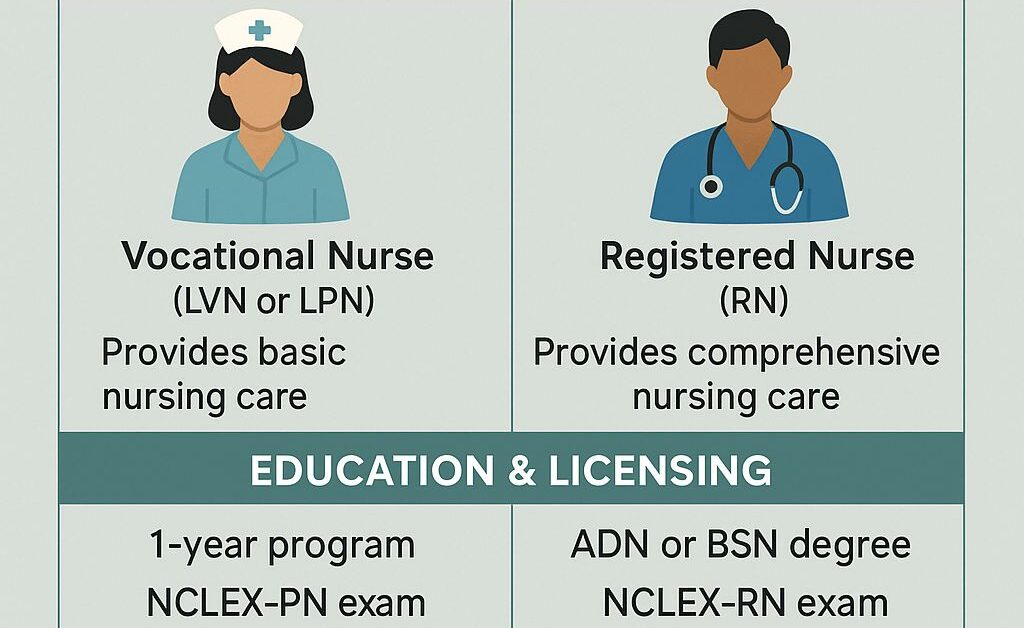

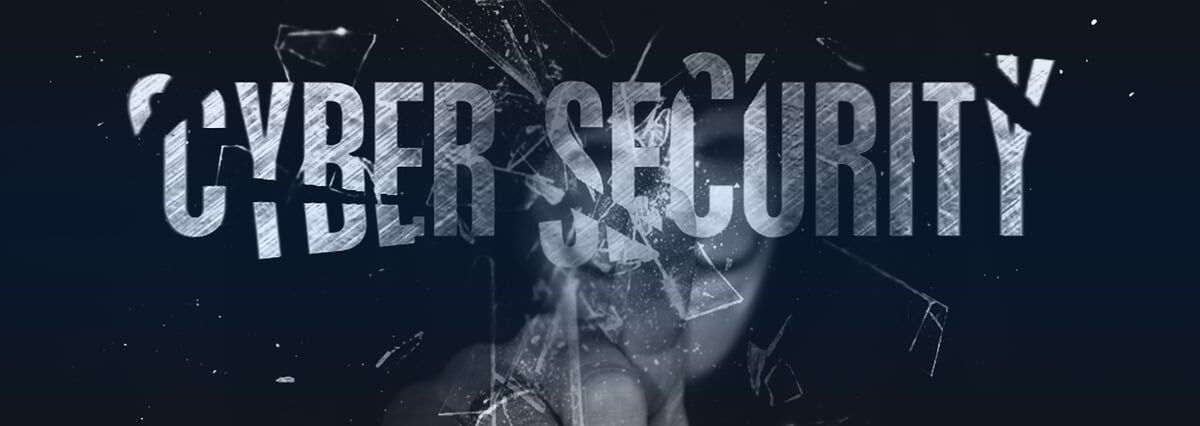
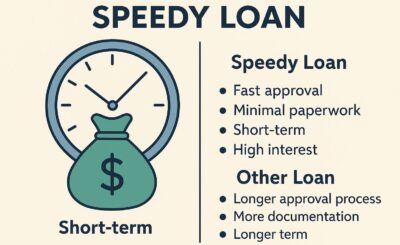


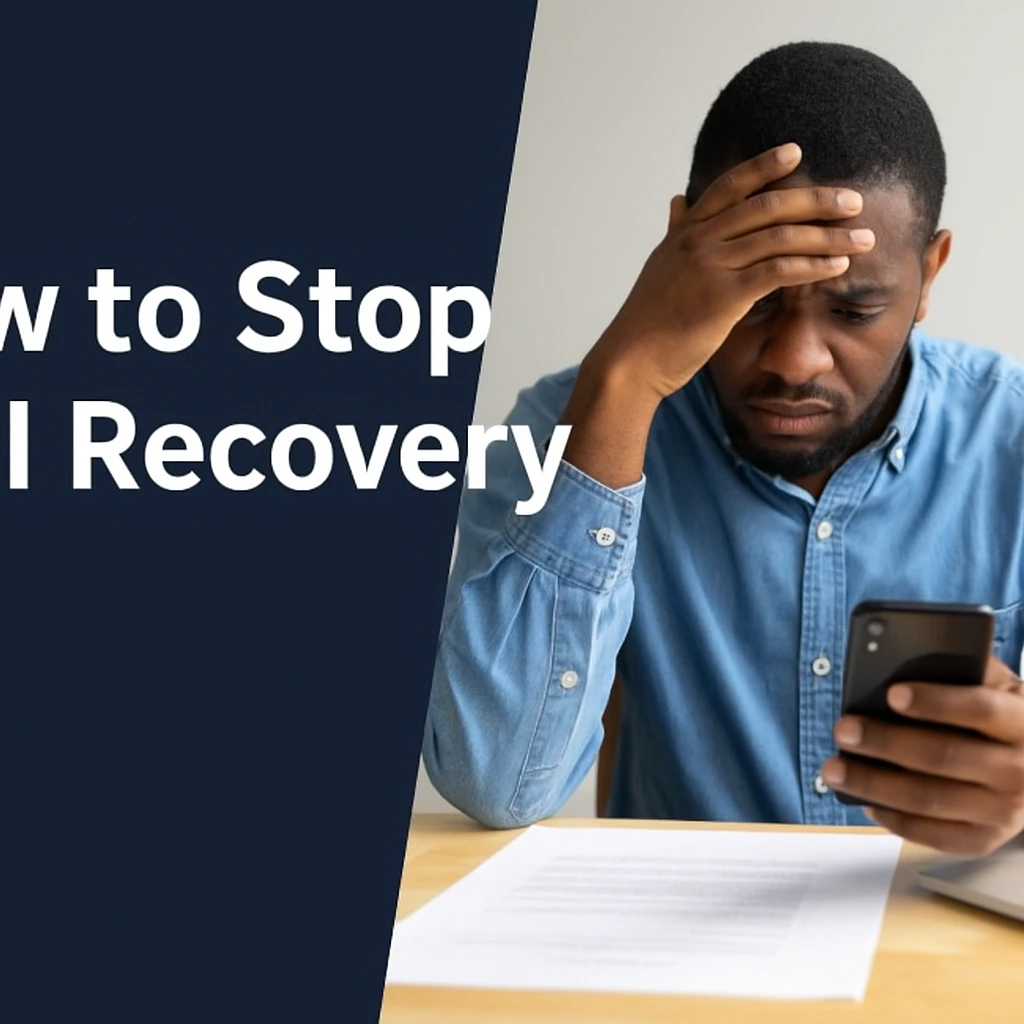
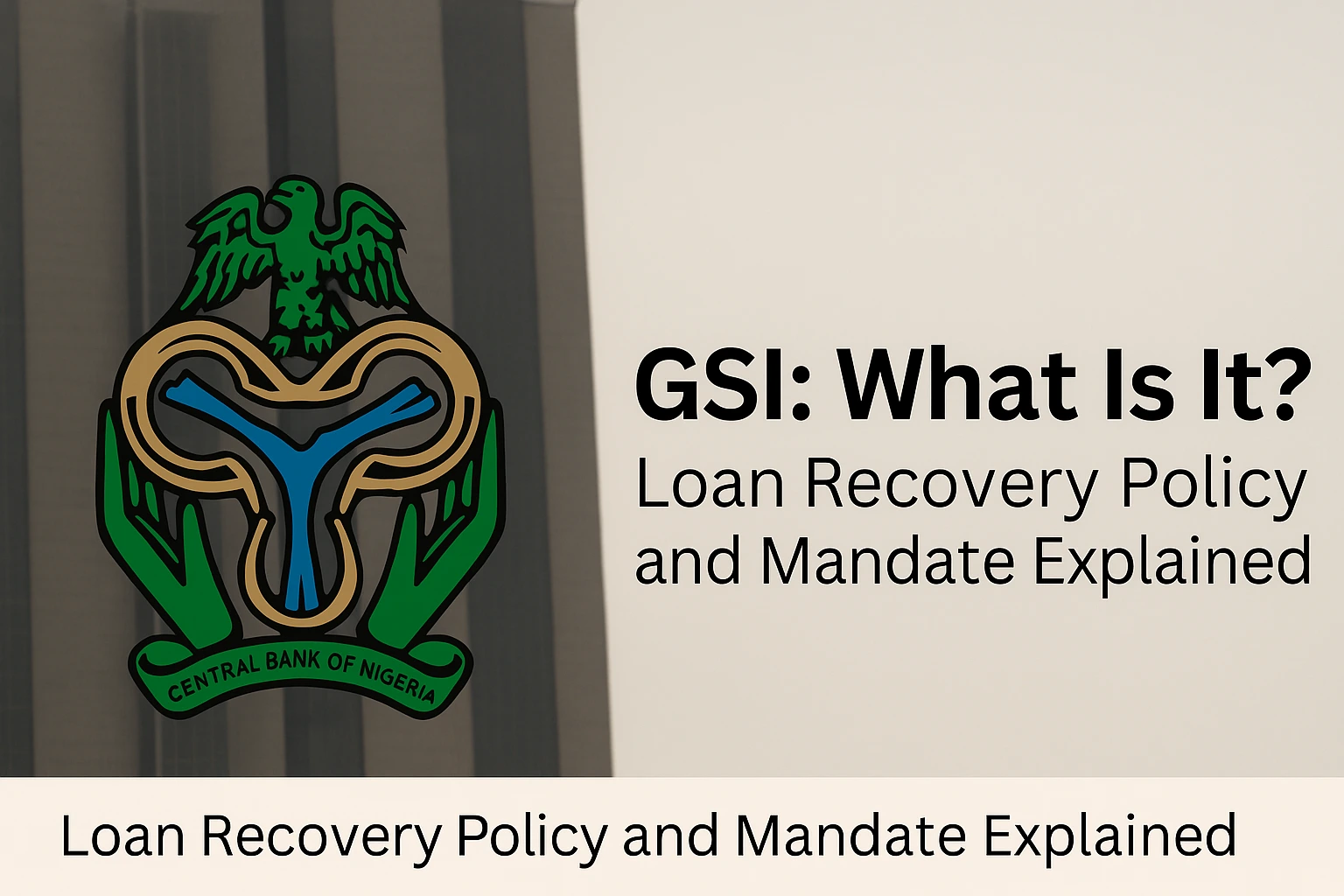
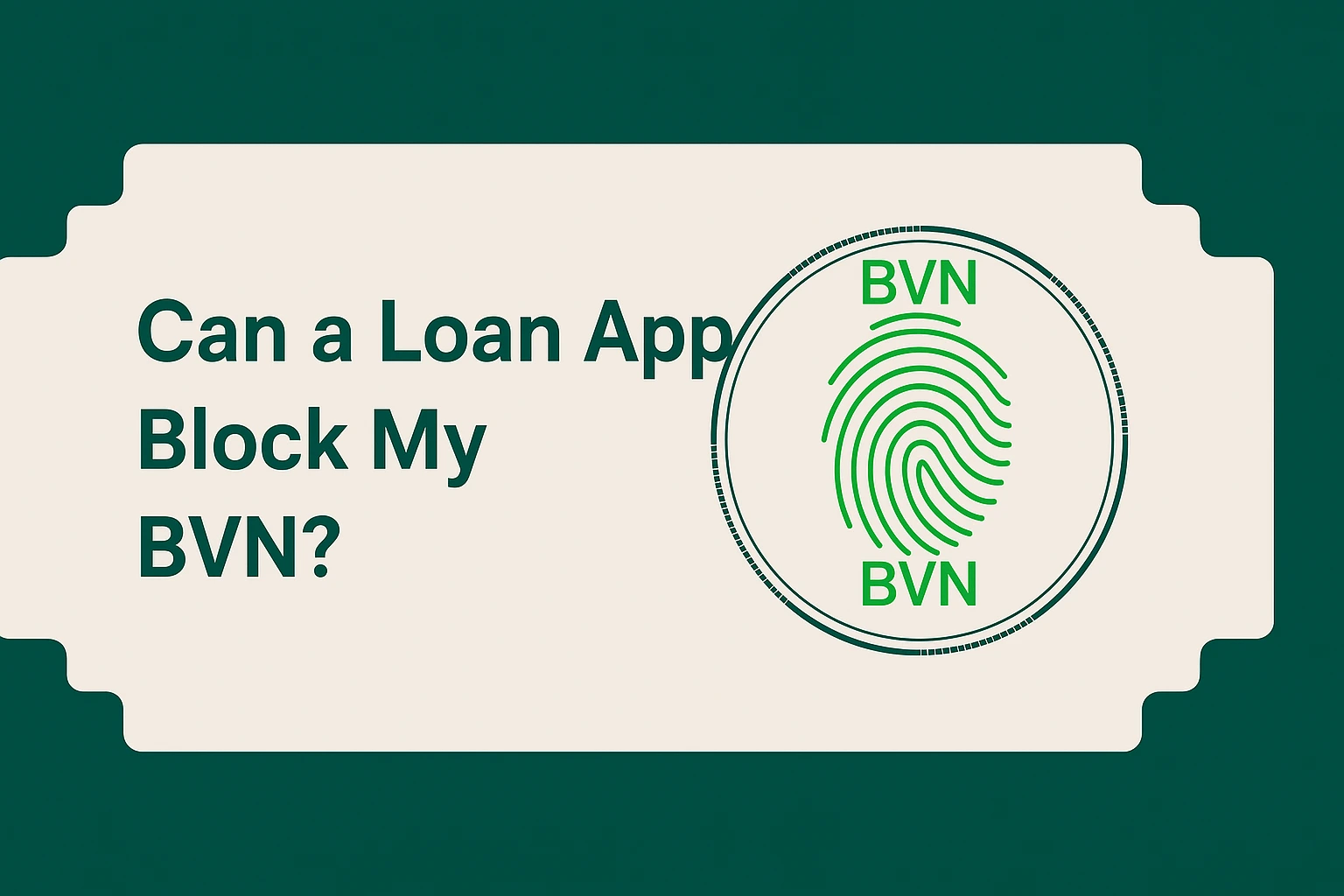
2 thoughts on “Banned Loan Apps in Nigeria: 2025 Full List of Banned and Blacklisted Apps”